They do not care about a patient's well being, they treat us like kids.
About Seneca Health Services Inc
I like that they accept Medicaid, Medicare and various commercial insurances to make paying for services easier. You may qualify for financial assistance as well. Telehealth support is also an appealing feature of their services. It optimizes convenience in a way that makes your recovery experience exciting. Their interdisciplinary clinical team includes experts in addiction therapy and mental health care. Treatment begins with intake assessment and personalized treatment planning. This is followed by MAT and outpatient therapy.
MAT is the most effective technique in addressing addiction to opioids, alcohol and stimulants. It uses meds approved by the FDA alongside behavioral therapy to support lasting recovery. The meds used for this purpose help to reduce withdrawal symptoms and curb cravings. This lets you respond better to behavioral therapy.
The facility provides individual and group therapy that inspires accountability, empathy and coping skills. Their therapeutic interventions foster personal growth, encourage positive peer interactions and help you stay committed and stick to your routine. Combining meds and therapy offers you the best shot at maintaining a substance free lifestyle.
You’ll also benefit from the guidance of peers who have lived experiences through their peer recovery support. These peers can serve as mentors and a source of hope and inspiration regardless of your recovery pathways. Psychiatric evaluation and medication management services are also an integral component of their MAT program.
These services support folks with both opioid addiction and co-occurring mental health issues. They complement their treatment with comprehensive case management. This primarily involves connection to community resources including medical care, stable housing and education/vocational training.
Latest Reviews
Rehab Score
Gallery
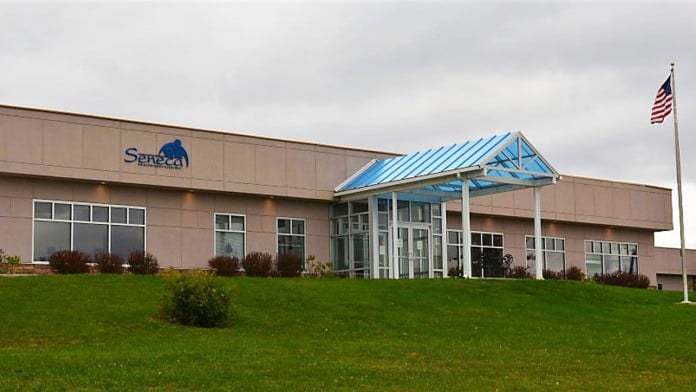
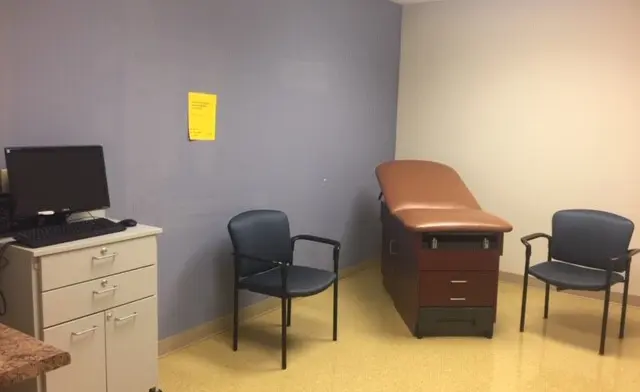
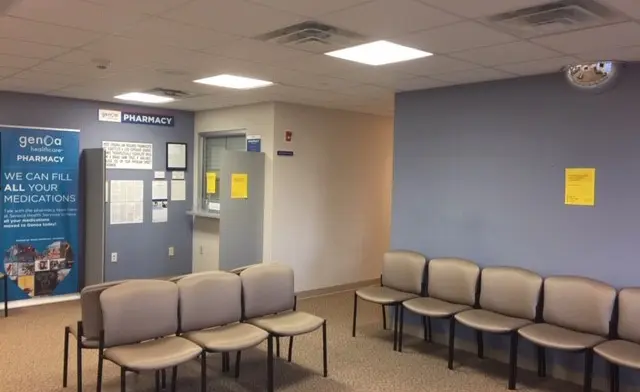
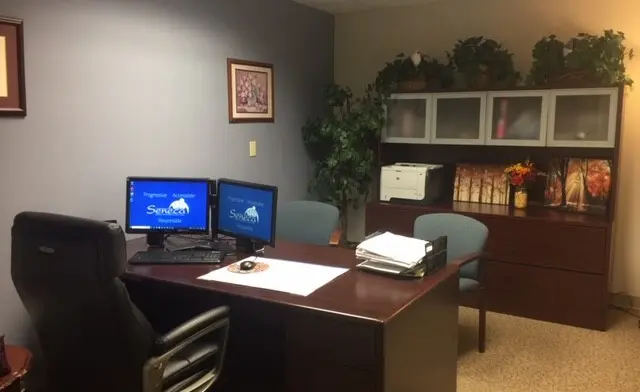
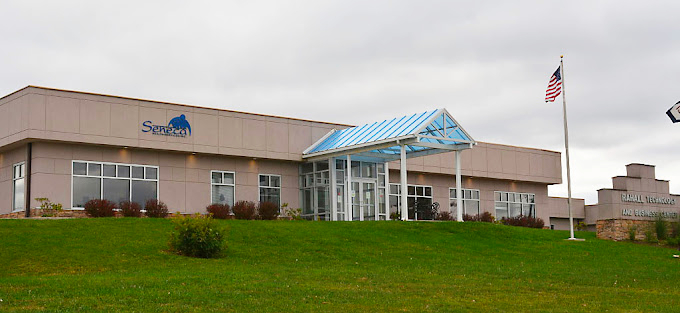
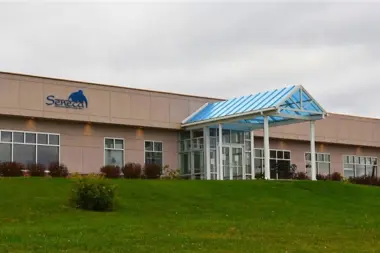
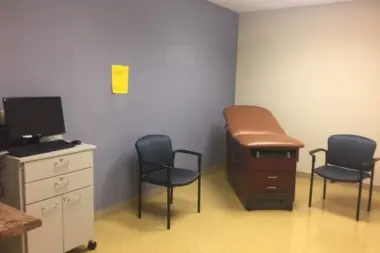
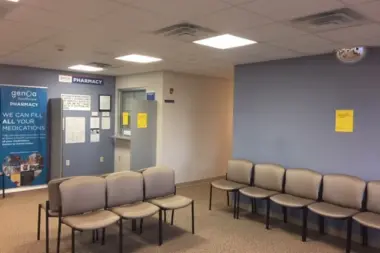
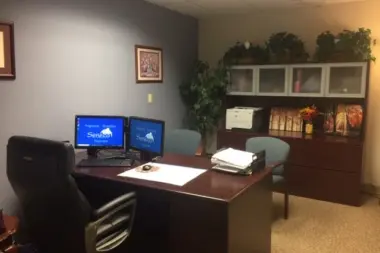
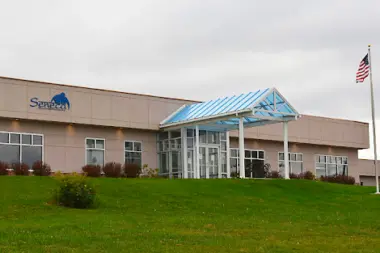
Accepted Insurance
Other Forms of Payment
Medicaid is a state based program that helps lower-income individuals and families pay for healthcare. Medicaid covers addiction treatment so those enrolled can use their coverage to pay for rehab. When a program accepts Medicaid the client often pays very little or nothing out of their own pocket.
Private insurance refers to any kind of healthcare coverage that isn't from the state or federal government. This includes individual and family plans offered by an employer or purchased from the Insurance Marketplace. Every plan will have different requirements and out of pocket costs so be sure to get the full details before you start treatment.
Self-pay involves paying for treatment out of your own pocket. You can use savings or credit, get a personal loan, or receive help from family and friends to fund your treatment. If you don't have insurance or your insurance plan doesn't cover a specific program, self-pay can help ensure you still get the care you need.
Financial aid can take many forms. Centers may have grants or scholarships available to clients who meet eligibility requirements. Programs that receive SAMHSA grants may have financial aid available for those who need treatment as well. Grants and scholarships can help you pai for treatment without having to repay.
Sliding scale payments are based on a client's income and family size. The goal is to make treatment affordable to everyone. By taking these factors into account, addiction recovery care providers help ensure that your treatment does not become a financial burden to you or your family, eliminating one barrier to care.
Medicare is a federal program that provides health insurance for those 65 and older. It also serves people under 65 with chronic and disabling health challenges. To use Medicare for addiction treatment you need to find a program that accepts Medicare and is in network with your plan. Out of pocket costs and preauthorization requirements vary, so always check with your provider.
Military members, veterans, and eligible dependents have access to specific insurance programs that help them get the care they need. TRICARE and VA insurance can help you access low cost or no cost addiction and mental health treatment. Programs that accept military insurance often have targeted treatment focused on the unique challenges military members, veterans, and their families face.
Private insurance refers to any kind of healthcare coverage that isn't from the state or federal government. This includes individual and family plans offered by an employer or purchased from the Insurance Marketplace. Every plan will have different requirements and out of pocket costs so be sure to get the full details before you start treatment.
Addiction Treatments
Levels of Care
Outpatient Programs (OP) are for those seeking mental rehab or drug rehab, but who also stay at home every night. The main difference between outpatient treatment (OP) and intensive outpatient treatment (IOP) lies in the amount of hours the patient spends at the facility. Most of the time an outpatient program is designed for someone who has completed an inpatient stay and is looking to continue their growth in recovery. Outpatient is not meant to be the starting point, it is commonly referred to as aftercare.
Clients who are leaving detox or intensive inpatient care often transition into a rehab aftercare program. Outpatient treatment is among the most common rehab aftercare services, but clients often continue to receive support long after being discharged from formal treatment. Clients' long-term care plans are highly individualized and designed to evolve with the clients' changing needs. Case managers and care teams typically work with the client to design their unique care strategy.
Planning a drug intervention in West Virginia is a challenging process. Often, complex family dynamics and long-term patterns of behavior are contributing to the addiction. Drug intervention programs offer intervention specialists who can help with this process. These professionals educate everyone involved about substance abuse, addiction, enabling, and recovery. They can facilitate the intervention, keeping the discussion on track and productive. They can also provide treatment options and guide the individual to the best program.
Drug and alcohol addiction often takes a heavy toll on one's body. Over time, a physical dependence can develop, meaning the body physiologically needs the substance to function. Detox is the process of removing drugs and/or alcohol from the body, a process that can be lethal if mismanaged. Medical detox is done by licensed medical professionals who monitor vital signs and keep you safe, healthy, and as comfortable as possible as you go through detox and withdrawal.
Clients in addiction recovery often transition from inpatient rehab to intensive outpatient programs (IOP) to promote their successful reintegration into their home, workplace, and community. These programs provide high-level support for clients in early recovery and those at an increased relapse risk, offering between nine and 20 hours of treatment per week on average. Intensive outpatient treatment typically involves a range of therapeutic approaches, including psychotherapy, recovery education, holistic treatments, such as acupuncture, and medication assisted treatment (MAT) for alcohol and/or opioid dependency.
Treatments
The goal of treatment for alcoholism is abstinence. Those with poor social support, poor motivation, or psychiatric disorders tend to relapse within a few years of treatment. For these people, success is measured by longer periods of abstinence, reduced use of alcohol, better health, and improved social functioning. Recovery and Maintenance are usually based on 12 step programs and AA meetings.
Drug addiction causes psychological and physical damage through repeated and uncontrollable use of substances. Drug rehab in West Virginia focuses on providing a full continuum of care, from detox to aftercare, and treatment can take place in outpatient or inpatient settings, based on your needs.
A combined mental health and substance abuse rehab has the staff and resources available to handle individuals with both mental health and substance abuse issues. It can be challenging to determine where a specific symptom stems from (a mental health issue or an issue related to substance abuse), so mental health and substance abuse professionals are helpful in detangling symptoms and keeping treatment on track.
Opioid rehabs specialize in supporting those recovering from opioid addiction. They treat those suffering from addiction to illegal opioids like heroin, as well as prescription drugs like oxycodone. These centers typically combine both physical as well as mental and emotional support to help stop addiction. Physical support often includes medical detox and subsequent medical support (including medication), and mental support includes in-depth therapy to address the underlying causes of addiction.
In West Virginia, individuals seeking substance abuse treatment can access comprehensive rehab programs. Through a combination of individualized treatment planning and evidence-based therapies, you'll receive the treatment you need to overcome addiction and maintain your recovery long-term. You can also expect individual and group therapy, skills training, and personalized care to give you all the support you need to maintain your recovery after treatment.
In West Virginia, dual-diagnosis addiction treatment programs provide specialized care for individuals with co-occurring substance use disorders and mental health conditions. These programs offer a full continuum of care, including detox, outpatient, inpatient, intensive outpatient, and partial hospitalization options. Treatment includes individual and group therapy, medication management, experiential therapy, skills training, and relational counseling.
Programs
Adult rehab programs include therapies tailored to each client's specific needs, goals, and recovery progress. They are tailored to the specific challenges adult clients may face, including family and work pressures and commitments. From inpatient and residential treatment to various levels of outpatient services, there are many options available. Some facilities also help adults work through co-occurring conditions, like anxiety, that can accompany addiction.
Young adulthood can be an exciting, yet difficult, time of transition. Individuals in their late teens to mid-20s face unique stressors related to school, jobs, families, and social circles, which can lead to a rise in substance use. Rehab centers with dedicated young adult programs will include activities and amenities that cater to this age group, with an emphasis on specialized counseling, peer socialization, and ongoing aftercare.
Serving in the military is both mentally and physically challenging, and can result in trauma that persists even after combat ends. Military programs are tailored to the specific and often complex needs of active duty personnel, veterans, and military families. Clients often access these programs through the U.S. Department of Veterans Affairs (VA).
Clinical Services
Group therapy is any therapeutic work that happens in a group (not one-on-one). There are a number of different group therapy modalities, including support groups, experiential therapy, psycho-education, and more. Group therapy involves treatment as well as processing interaction between group members.
People in West Virginia seeking drug and alcohol addiction treatment usually undergo one on one individual therapy. This gives you a safe and supportive environment to explore issues with substance use and any co occurring mental health conditions. Your therapist offers individualized support to help you build resilience and work toward achieving long term sobriety.
Through cognitive behavioral therapy in West Virginia, therapists encourage clients to identify negative thoughts, gain control over them, and develop ways to change their behaviors. This can be an effective way to break the cycle of addiction and overcome substance use disorder.
Motivational interviewing in West Virginia is often used when the client's desire to change is low, their confidence is low, or they are struggling with mixed feelings about change. This technique allows them to explore the change process and feel empowered to move forward.
During family therapy, family members work with therapists to understand addiction as a disease and how it affects the family unit. Using this approach fosters empathy and reduces blame between family members. This creates a nurturing environment that helps support their loved one's sobriety.
Trauma therapy gives you a structured approach to healing from past traumatic events. You can experience the emotional and psychological impact of trauma whether you witness an event or experience it. Your therapist guides you in understanding your responses and helps you develop healthier coping skills.
Amenities
-
Private Setting
Staff & Accreditations
Staff
Marcie Vaughan, MA, LSW
President/CEO
Jessica Shieler, MA, MSW, LICSW
Vice President/Clinical Services
Amy LeRose, Vice President, Human Resources
Julie Clutter, Vice President, Finance
Kevin Ward, MBA
VP, Information Technology
Noel Jewell, MD
Medical Director
Angel Green
Regional Administrative Coordinator
Savanna Babcock, MSW, LICSW
Clinical Director
Mital Patel, MA, MSW, LCSW
Clinical Director
Kimberly Raleigh, RN
Director of Nursing
Jeremy Nicholas, RBA
Crisis Coordinator
Johnathan Withrow, BSN, RN
Crosswinds Center Coordinator
Rebecca Frame, BS
Recovery Ridge Coordinator
Wanda Wyatt, MS, LSW, MAC, ADC, CCS
SUD Coordinator
Charity Register, MSW- IDD
Case Management Coordinator
Amber McHale, MS
Case Management Coordinator
Accreditations

State Licenses are permits issued by government agencies that allow rehab organizations to conduct business legally within a certain geographical area. Typically, the kind of program a rehab facility offers, along with its physical location, determines which licenses are required to operate legally.
State License: West Virginia
Contact Information
804 Industrial Park Rd
Maxwelton, WV 24957






